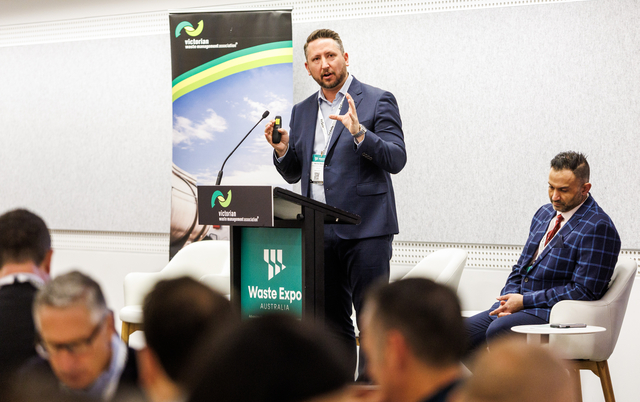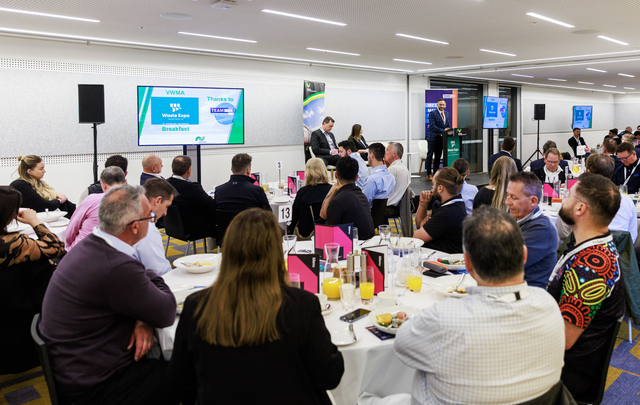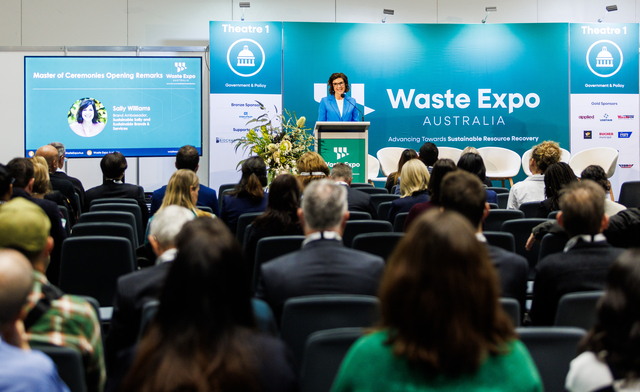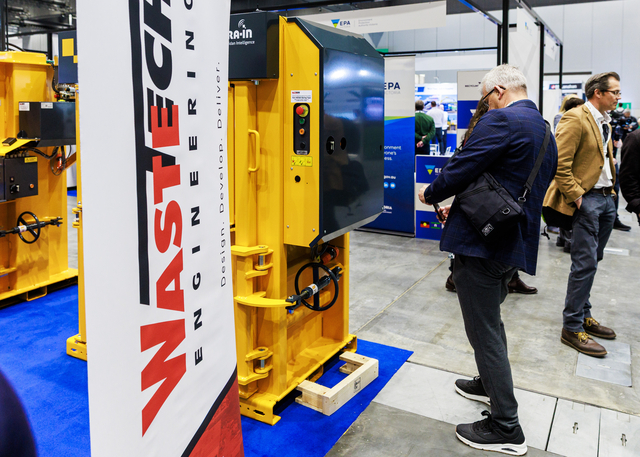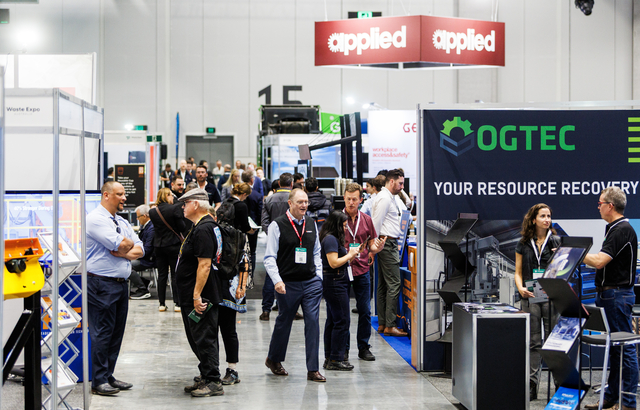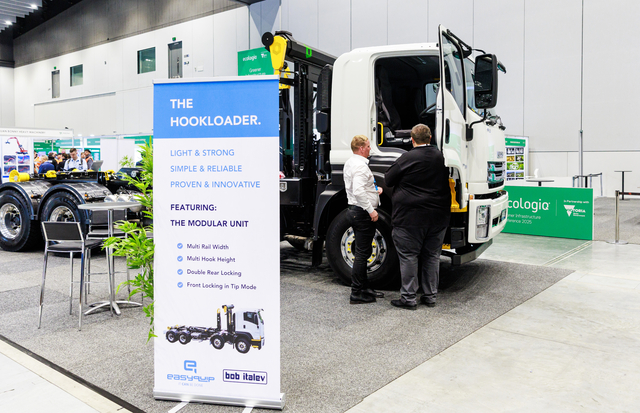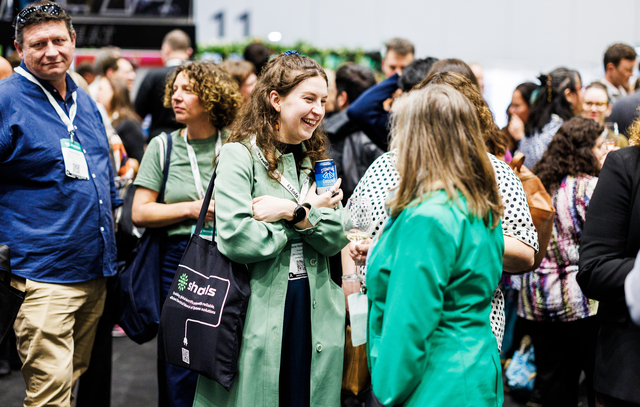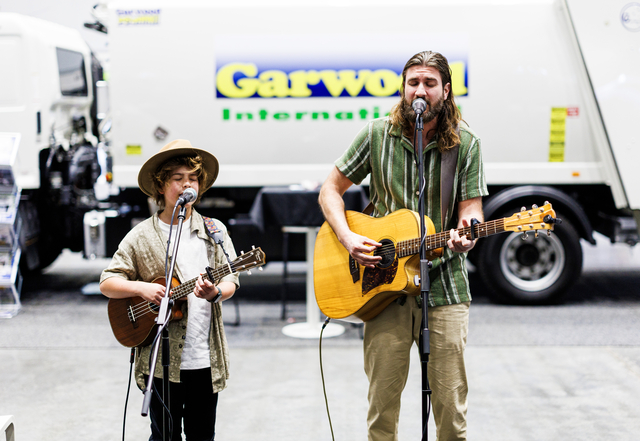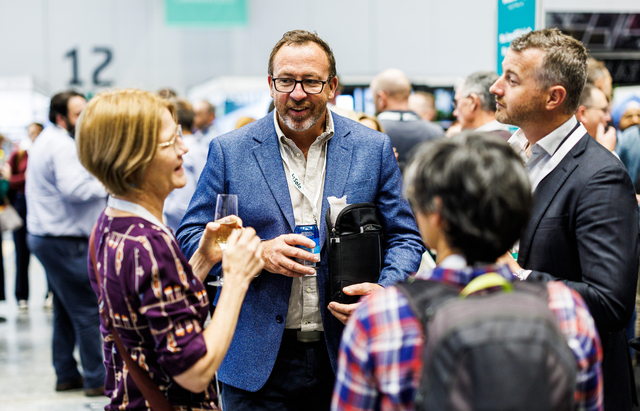This year’s Waste Expo Australia saw more than 4,000 attendees through the doors over two days at the Melbourne Convention and Exhibition Centre, with an overwhelming emphasis on circularity and sustainable resource recovery dominating discussions across both the exhibition and conference programs.
More than 150 exhibitors showcased industry-leading waste management and resource recovery solutions, with exceptional professional development opportunities and thought leadership on offer from over 110 speakers across 45 conference sessions spanning the Waste Expo Summit and the co-located ecologiQ Greener Infrastructure Conference.
Right from the start of the standing-room-only Government and Policy stream, conversations were focused on the urgency and necessity of a circular economy in Victoria and the wider Australian economy.
Tony Circelli, CEO of Recycling Victoria, opened discussions with statistics highlighting progress in circular economy initiatives, like a material recovery rate of 70 per cent for the state, along with a doubling of the number of containers seen through the Container Deposit Scheme in its second year.
Following the opening panel discussions on circular economy challenges and opportunities, Matt Genever, CEO of Sustainability Victoria, reinforced the importance of community engagement and cross-sector collaboration in driving the transition to a circular economy.
“Social license is so important. We need the community to understand why we’re trying to do the things that we do,” he said.
“And an event like this becomes that melting pot where we’ve got industry, government.
“We’ve got a government lounge right here where industry can come and talk directly to government colleagues. We’ve got community here, and that’s what we need, those conversations happening between individuals, businesses, and government. Waste Expo provides an amazing platform every year for us to be able to do that.”
Echoing this theme of community engagement in the Summit’s Waste-to-Energy stream, Scott Reynolds from Kwinana Energy Recovery discussed how Australia’s first operational energy recovery facility is transforming waste management by diverting waste from landfill and recovering energy for the grid, while sharing operational lessons with other organisations preparing for their own energy recovery journey.
Reynolds emphasised that collaboration and engagement has been fundamental to the facility’s success, particularly in demonstrating how energy recovery technology complements recycling and other sustainable waste management practices.
“In a society where we have a greater focus on sustainability, being able to explain how complementary energy recovery is to other parts of the whole waste management process and hierarchy is really important in terms of bringing our communities along on this journey,” he said.
The Circular Economy stream of the Waste Expo Summit highlighted the critical need for mandatory Extended Producer Responsibility (EPR) regulations and national standards to create a level playing field for recyclers and brand owners. Key challenges included ensuring material purity and traceability, addressing safety risks in e-waste handling, and building systems-thinking approaches across entire supply chains with proper education and infrastructure investment.
Circular Australia CEO Lisa McLean, chaired the Circular Economy stream on day one, and noted a unified message of the need for regulation as fundamental to enabling the circular economy in Australia – from plastics to e-waste and solar panels.
“Mandatory extended producer responsibility laws and regulations were a really big theme at Waste Expo Australia, with strong support across these sectors for that regulatory and policy piece. It’s essential to creating a level playing field for the entire industry, from government to private enterprise and recyclers.”
For the first time in 2025, the ecologiQ Greener Infrastructure Conference co-located with Waste Expo Australia, bringing together the resource recovery and sustainable infrastructure sectors in a strategic partnership that bridges the gap between resource recovery, sustainable infrastructure and large-scale government projects.
EcologiQ is at the forefront of integrating recycled and reused materials into road and rail infrastructure projects across Victoria. The conference showcased how the transition to purposely greener infrastructure is accelerating, driven by decarbonisation targets and circular economy principles supported by the Victorian Government’s Recycled First Policy.
Yas Grigaliunas, CXO of Videopro and former founder of Circonomy, led a keynote to start the ecologiQ conference, summarising her startup journey through the circular economy as a full-circle story of believing, building, scaling and failing. She encouraged attendees and other potential founders that events like the Greener Infrastructure conference were what moves the entire circular industry forward.
Exhibition Manager Sherri Pearson said Waste Expo Australia continued to grow thanks to its relevance, strategic industry partnerships, and ongoing adaptation to industry trends.
“The success of Waste Expo Australia is driven by its ability to bring together the most influential players in the sector, and future editions will focus on expanding international reach and providing even more value to attendees and exhibitors,” she said.
“Next year’s event will see exciting enhancements focused on the latest technologies and solutions being developed globally. As part of an international portfolio of events, Waste Expo Australia will continue to be the industry’s must-attend event.”
Waste Expo Australia will return to the Melbourne Convention and Exhibition Centre on 28-29 October 2026. Stay up to date at www.wasteexpoaustralia.com.au.

